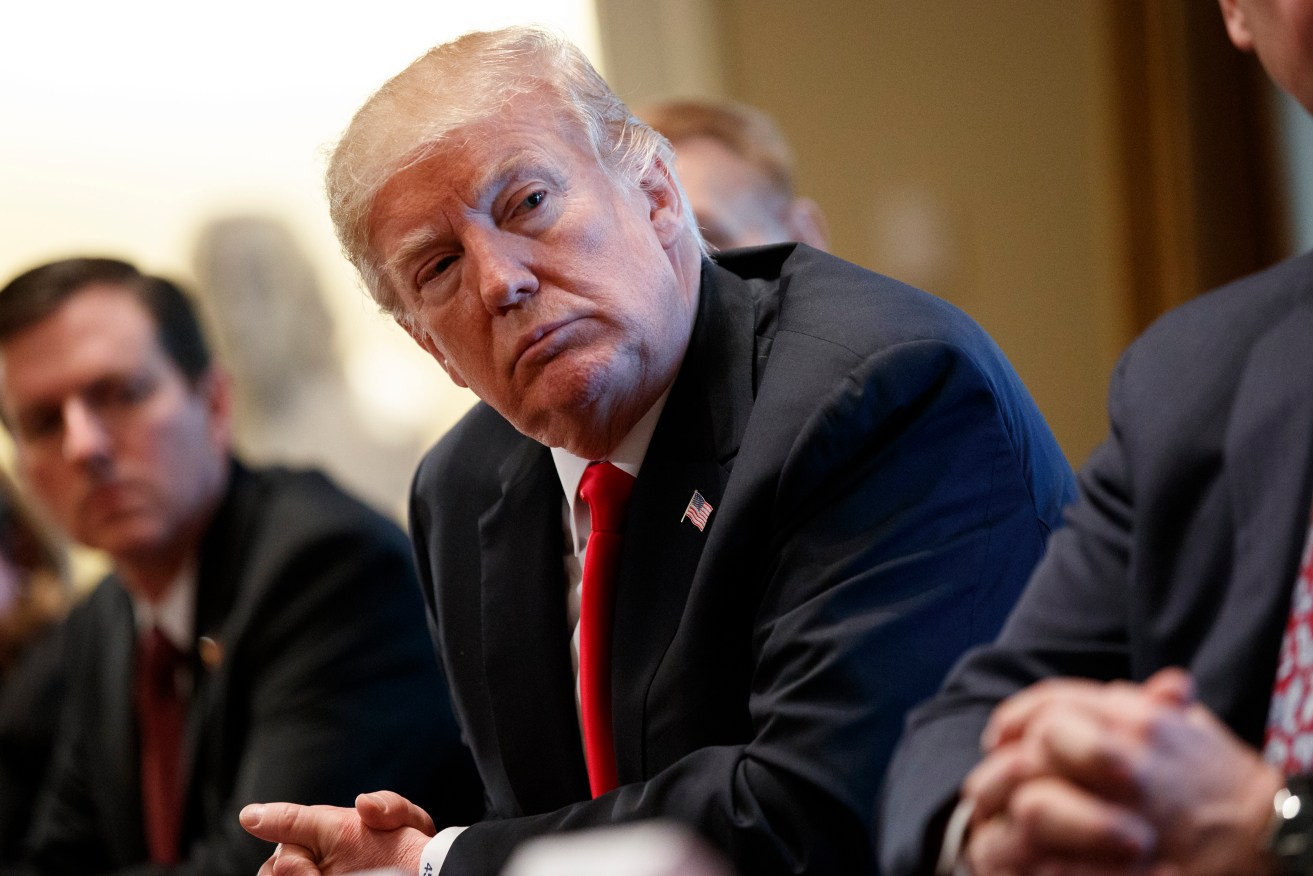“We’re not backing down”: Trump shrugs off opposition to tariffs
President Donald Trump has refused to back down from imposing his planned tariffs on steel and aluminium imports into the US despite pleas from his own party.

President Donald Trump during a meeting with steel and aluminium executives at the White House. Photo: AP/Evan Vucci
Trump has been unmoved by lobbying from lawmakers, leading companies and industry groups since he first announced the measure. If anything, he has repeatedly upped the ante.
“We’re not backing down,” Trump said during a White House meeting with Israeli Prime Minister Benjamin Netanyahu on Monday. “I don’t think you’re going to have a trade war,” he added, without elaborating.
At the same time, he has increased pressure on Canada and Mexico over trade, saying the two could avoid being caught in his planned hefty tariffs if they ceded ground in talks on a new NAFTA trade deal.
Trump’s determination to push ahead with a 25 per cent tariff on steel imports and a 10 per cent duty on aluminium has prompted threats of retaliation from the European Union, Canada, China and Brazil among others. It has roiled world stock markets as investors worry about the prospect for an ever-escalating trade war that would derail global economic growth.
His plan, announced on Thursday, has also hit resistance from some senior figures in his own Republican Party.
House of Representatives Speaker Paul Ryan, a Republican whose state of Wisconsin would be hit by proposed European counter-tariffs on Harley Davidson motorcycles, urged the White House on Monday not to push ahead with the action.
Fellow Republican Kevin Brady, the top House legislator on trade, said American consumers should not be forced to pay more for goods.
Trump was expected to finalise the planned tariffs later in the week, posing a tough challenge for US Trade Representative Robert Lighthizer, Canada’s Foreign Minister Chrystia Freeland and Mexican Economy Minister Ildefonso Guajardo. They were meeting in Mexico City on Monday to wrap up the latest round of discussions on revamping the 1994 NAFTA deal.
Trump has touted the tariffs as a way to revive the US steel and aluminium industries, in keeping with his promises both on the campaign trail and in the White House that he will seek deals that better favour American workers.
That has included the threat that Washington will withdraw from NAFTA if it is not satisfactorily renegotiated.
In Washington, aides scrambled to meet Trump’s demand for the paperwork to be completed for a formal announcement this week. The exact timing was still unclear as the tariff documentation had to be drafted and go through a variety of reviews, a process that takes days, an administration official said.
Trump remained adamant about signing the tariffs, according to officials in and out of the White House. The president “sees this as a base issue for him”, one Trump outside adviser said.
In Australia, BHP Billiton chief executive Andrew Mackenzie said Trump’s tariff move was a “black day” for the world and could hurt Australia’s economy.
Mackenzie said it is too early to tell how the tariffs, which are aimed at protecting US producers, will affect BHP, but he said he is concerned the restrictions could damage the current optimism toward free trade.
“Outside of the US the sense that I have at the moment is that people are re-embracing free trade after a bit of a wobble – partly driven by the result of several elections,” he told a business conference in Sydney.
“I don’t see that changing anytime soon but I am worried about this sort of sentiment shift, that people all around the world might suddenly say free trade is not good for the world, and that would be particularly bad for a trading company like BHP and a trading nation like Australia.”
Despite the uncertainty created by the tariffs, the BHP boss still believes the global economy is in its best shape in eight years.
“In spite of recent moves made by the United States to impose tariffs on steel and aluminium products – a black day for the world and business – elsewhere we do observe buoyant economic conditions underpinned by the growth of free trade outside the US,” Mackenzie said.
“We see the world economy in probably the strongest shape it has been since 2010.”
Mackenzie said free trade was the “lifeblood and promoter of health” of the global economy, and he expects it to flourish despite the recent developments in the US.
“We [BHP] will live and die by what happens with free trade,” he said.
“We will never hide or seek to hide behind trade barriers to shield ourselves from our lack of competitiveness.
“We will always look forward to competing to win on level playing fields around the world because that will make us stronger.”
– Reuters/AAP




